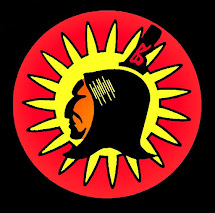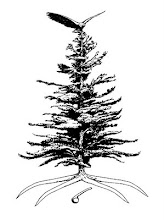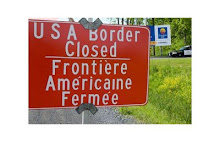Tuesday, March 31, 2009
The Center for Public Intoxication
The latest installment from the "Tobacco Underground" (see the side bar) was released last week from a group called the Center for Public Integrity. Now don't let the name fool you; the only place integrity shows up is in the name. The series is "generously" funded by the Johns Hopkins Bloomberg School of Public Health. As most Native people know, New York City Mayor and billionaire, Michael Bloomberg condemns only one thing more than "Indians" and that's the cigarette business. By "generously" supporting this project through his School of Public Health he gets to hire journalistic hit men to assassinate both. All that had to be compromised was journalistic integrity, fairness and the ethics of using a School of Public Health to criminalize and slander the most marginalized people in the hemisphere.
As we have seen in the past with this group through the use of: ....."was not available for comment" or ...."was unwilling to comment" they get to tell a very enhanced, one-sided story of the Native involvement in the cigarette business. Back in November of 2008, I posted on the Native Pride blog, an email I sent to the Center for Public Integrity. I followed up that email with a phone call to one of their reporters offering an intelligent rebuttal to their slanted coverage and a challenge to their use of the word "integrity" in their name for not interviewing anyone to balance their obviously opinionated stories. The reporter confirmed receipt of my email and took my contact information assuring me that they would contact me for their next article. Clearly the two morons in Kahnawake (Kirby and Splicer), who obviously loved the spotlight, suited their needs better than an intelligent explanation of Native issues.
There is some truth to what was reported. The integrity of the reporting is missing not because of what was exposed, but because of what was not. In previous articles specifically dealing with tobacco sales by Native retailers in New York, the Tobacco Underground repeatedly referred to the trade as illicit or illegal and never once suggested that State and Federal authorities failed to stop it simply because they couldn't. And that was becaaaause IT'S LEGAL , you morons! The process of criminalizing Native commerce has been underway for a long time. Canada is just a little better at it than the US. I might add that they were better at the criminal use of residential schools and promoting racism against Native people as well, but then again Canada didn't have as many black people so we became Canada's Niggers. This series of articles does nothing to resolve any of the conflict that exists because of the tensions over Native sovereignty and our cultural distinction. It does nothing to address our right to conduct trade and commerce from and between our Native communities. It fails to confront the historical issues that bring us to where we are now. And it absolutely refuses to recognize anything positive about our communities or our people. It simply goes on and on about smuggling, gangs, mobsters, guns, drugs and illegal sales and manufacturing of cigarettes. All of that comes from your people. It comes from your dirty cities, your corrupt politicians and your greedy corporations. Tobacco is the only thing that came from us and you turned it into something sinful. You stole most of our land and polluted what you didn't. You tried to shove your religion, your laws and your phony democracy down our throats. You criminalized even the sale of our labor. As our men built your cities and your bridges they were condemned as tax evaders. You carved lines through and around our land, trying to cut us off from our friends and families from other communities. You tried to segregate us and limit our travel. You backed us into what's left of our communities with no means to survive except on your hand outs and when we push back and defend our right to exist and support our families, you criminalize us some more. So who makes it easy and morally effortless for Native people to cross those blurry lines into the "real" nefarious activities? You did. So if the Center for Public Integrity is going to offer it's skewed snapshot of our people to the public, then tell them how we got here. And put it in perspective because the streets of Kahnawake, Akwesasne, Cattaraugus and Tuscarora are still by a huge magnitude safer that those of Montreal, New York, Buffalo and Washington, D.C.. I will not defend those who bring harm to our communities. Our history does not justify or vindicate bad behavior, but it may explain some of it. To the Center for Public Integrity I ask; what's your excuse? Perhaps a better examination of the causes and roots of the problem would lead the way to solutions. Condemning and slandering our people and communities by suggesting that we represent all that is wrong with yours is wrong and serves no public interest.
Friday, March 6, 2009
We Want Half
Up till now most of the battles over the tobacco business on Native lands have been with the states. By and large most of those fighting for the right of Native people to carve out a market share of an industry with its origins in their own history and culture have looked the other way when it came to challenging the Feds. For over thirty years the federal excise tax has been paid with very little resistance. Up till recently, almost all the the products sold on Native land were produced by US manufacturers or imported by US distributors. Now Native brands have grabbed some major market share, at least on reservation sales. What once was just retail of established brands has become manufacturing, importing, wholesaling, marketing and retail that ranges from brick and mortar stores to e-commerce. For the Feds part they have quietly collected excise tax on the products before the product could leave their factories or customs agents and have played the spectator in the battle between the states and the Native people. With Native entrepreneurs becoming manufacturers and importers they found themselves in the awkward position of paying the federal taxes themselves directly. Some of the manufacturers dabbled with the sovereignty position and opposed the ATF regulations that called for the excise tax, but at $3.90 a carton, paying the tax was better for the overall business. Now in a the new era of unprecedented federal maneuvering, the excise tax has been raise to $10.00 per carton. To this the communities must tell the Feds, "Fine! But we want half". Communities that have product manufactured or exclusively imported for Native sales should have the option of having half, or $5.00 per carton, put into their own coffers. The feds will still see a significant increase from $3.90 on Native products and a dramatic increase on their domestic product sold by Native retailers. This process would allow much needed revenue for Native communities without placing higher tax burdens on Native products. As far as the Feds are concerned the $10.00 would be paid across the board on all cigarettes, but on Native products half would stay where it is needed most.
Subscribe to:
Comments (Atom)













![-[]-[]-/\-[]-[]-](https://blogger.googleusercontent.com/img/b/R29vZ2xl/AVvXsEjLoXmKO8PJVQ5pZ2q7GX7nFKw8H2tb28dxt-o10FUBNtOGszWhWoLB7tgjtMgtISpuSxNW3fcDxfuSS2DqojsdjNJ1lVggyUS374PnzsDbOhk4ukvtTunFQcyfkckZeBzcLbri4LDYN_E/s214/29-03-A-voice-from-the-Akw-.jpg)




